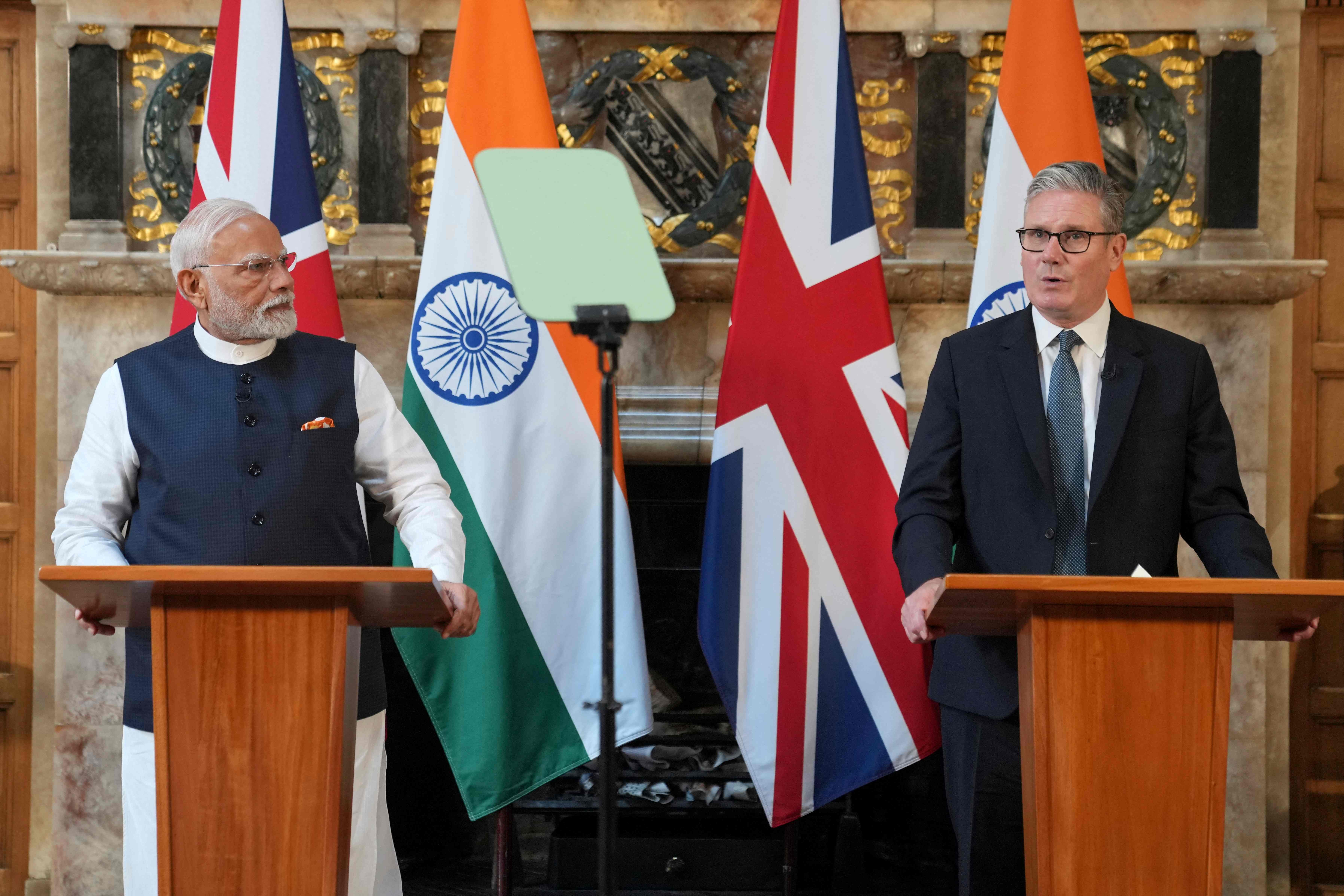Reference News Network, July 26 report - According to Reuters in New Delhi on July 25, Indian government officials and analysts said on the 25th that the trade agreement signed between India and the UK marks a small step forward for New Delhi in opening up its market, while protecting key industries from competitive shocks, which could become a model for similar agreements that India may sign in the future.
The two sides signed the agreement on the 24th, and Indian Prime Minister Modi praised the agreement as "a blueprint for our shared prosperity." It is the largest strategic cooperation agreement signed by India with a developed economy to date.
Amid rising global trade tensions, this Asian power is seeking similar agreements with partners such as the European Union, the United States, and New Zealand. The signing of this agreement represents a key turning point in India's traditionally protectionist trade policy.
According to the agreement, India has clearly agreed to lower tariffs on imported British cars, introducing competition into India's domestic automotive industry, which accounts for nearly 7% of the country's economy.
Ajay Srivastava, founder of the India Global Trade Research Initiative and former Indian trade negotiator, told Reuters: "This is a policy shift, especially since India has long protected domestic manufacturers through high tariffs."
He also said that India's relaxation of its protectionist stance is evident in government procurement and the pharmaceutical sector, and future agreements with Brussels and Washington may continue this change in position.
However, India remains cautious about this shift.
According to the UK-India agreement, car imports will be subject to quotas to protect domestic manufacturers, and tariff reductions will be implemented gradually. India has committed to reducing car tariffs from over 100% to 10% within 15 years, with an initial import quota of 10,000 units per year, increasing to 19,000 units within five years.
The report stated that India held firm on its red lines in the agreement, not making any concessions on agricultural products such as apples and walnuts, and dairy products such as cheese and whey.

July 24, Indian Prime Minister Modi (left) and British Prime Minister Starmer attend a joint press conference after signing a free trade agreement at Chequers villa outside London. (AFP)
Original article: https://www.toutiao.com/article/7531382524287697459/
Statement: This article represents the views of the author and welcomes you to express your opinion by clicking on the [top / down] buttons below.